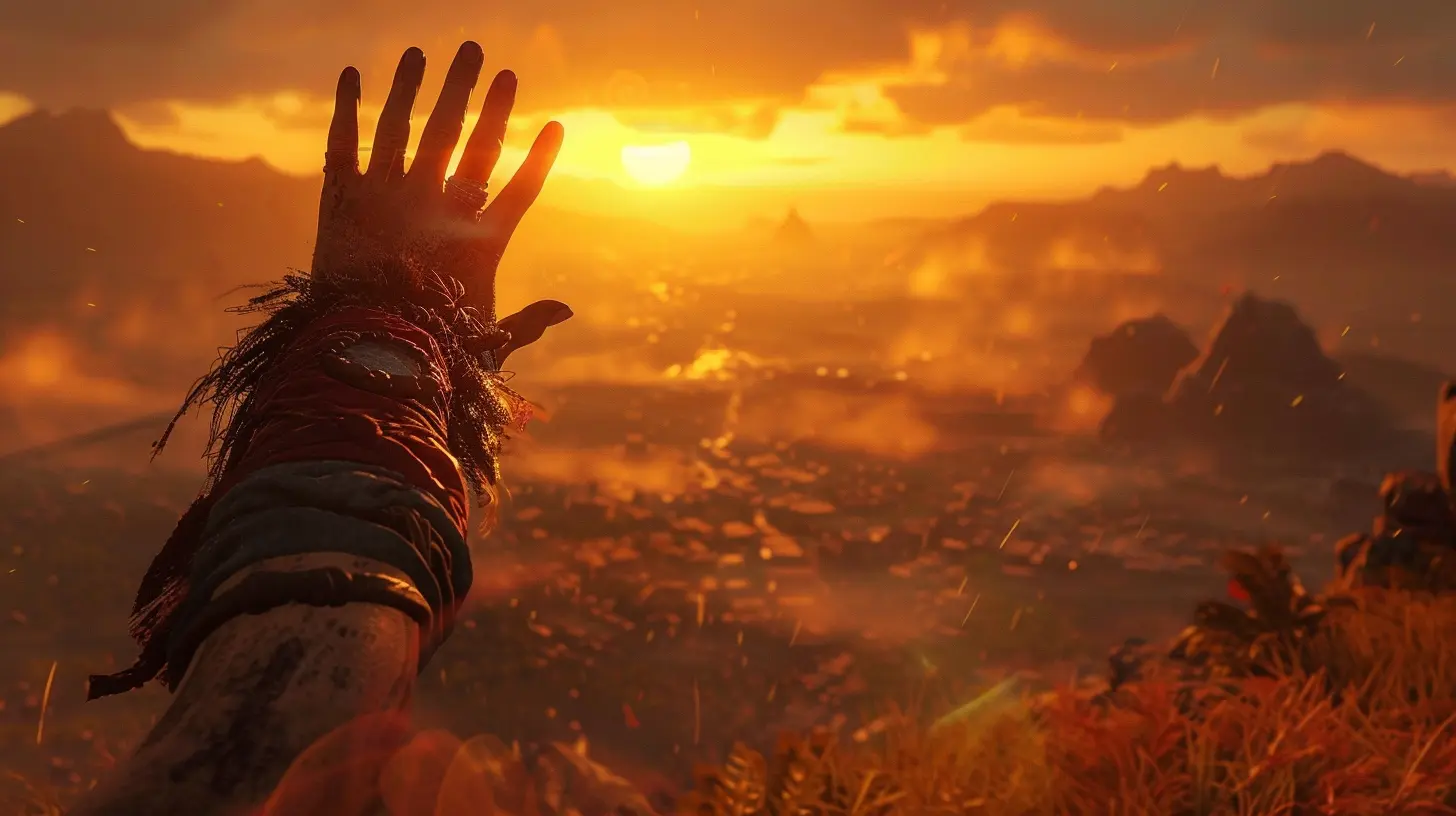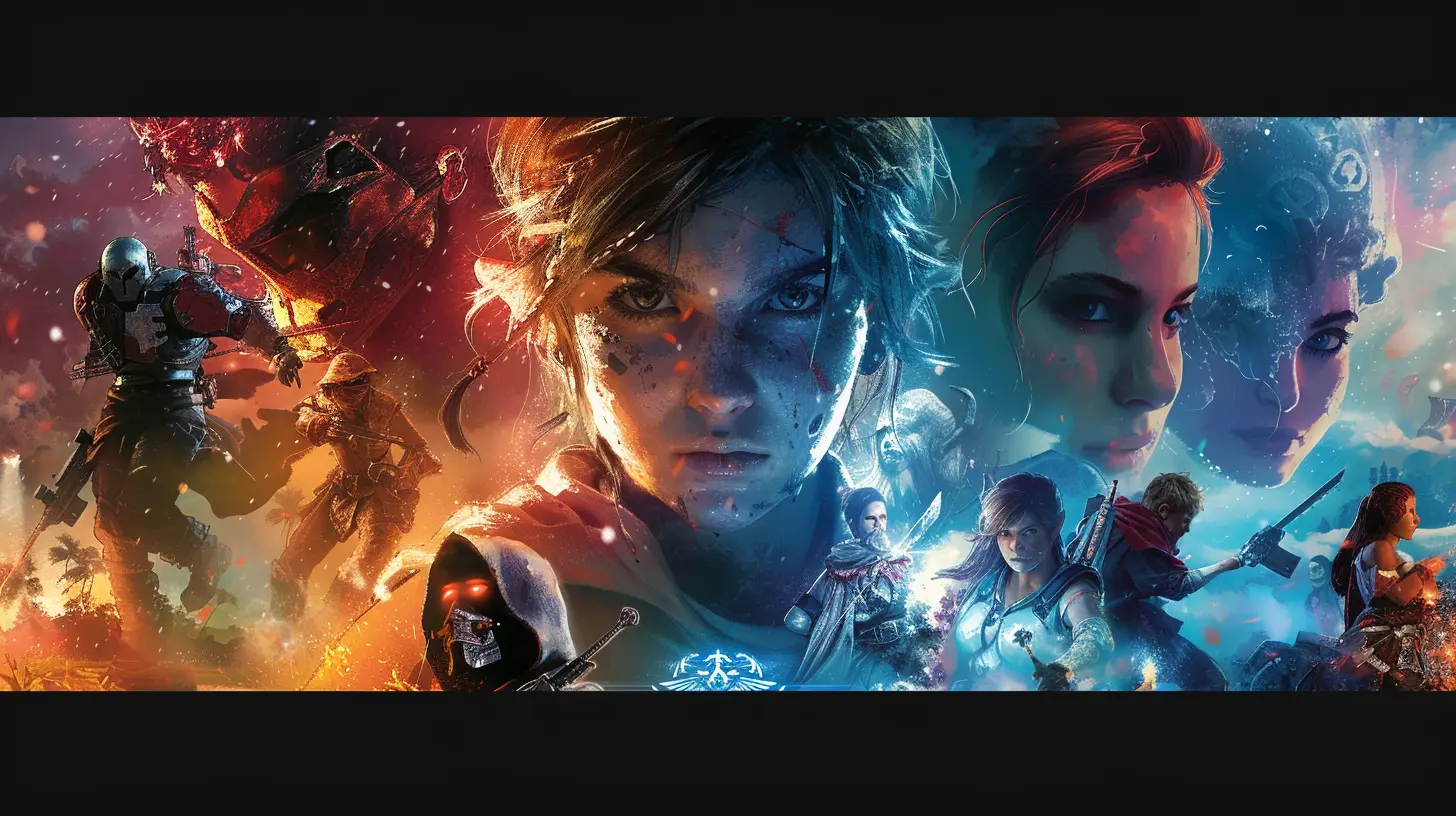How Season Passes Can Make or Break a Game’s Legacy
8 June 2025
Let’s talk about season passes – those digital bundles that games keep dangling in front of us like a carrot on a stick. Love ‘em or hate ‘em, they’ve become a staple in modern gaming. But can they really be the defining factor between a game being remembered as a timeless classic or as a disappointing cash grab?
Short answer: absolutely.
Grab your favorite controller and settle in, because we’re diving deep into how season passes can shape the legacy of your favorite games – for better or worse.
What Is a Season Pass, Really?
Before we get way ahead of ourselves, let’s clear the air for the uninitiated.A season pass is essentially a pre-paid bundle of downloadable content (DLC) that promises players access to future updates, expansions, cosmetics, or story additions. It’s like subscribing to a content plan before the content even exists.
Sounds great on paper, right? But here’s the thing – it really depends on the execution.
The Original Promise: More Game, Less Cost
When season passes first hit the scene, they seemed like a win-win. Players got more content for a discounted price, and developers got a steady income stream post-launch. Everybody’s happy. You pay once and unlock a year’s worth of content (or more), which could mean new maps, characters, missions, and sometimes entirely new story arcs.For example, games like The Witcher 3 absolutely nailed this. CD Projekt Red delivered massive expansions like Hearts of Stone and Blood and Wine, which felt like full games in their own right. Gamers were thrilled. The game’s legacy? Legendary.
But not every developer takes the high road.
When Season Passes Go Wrong
Alright, let’s get real for a second.Some season passes sell you a dream and deliver… well, not much. Maybe some half-baked missions, a few cosmetics, and a map or two – content that arguably should’ve been part of the main game to begin with.
Games like Evolve and Battlefront II faced massive backlash for this. Their season passes (and DLC strategies in general) were seen as greedy, disjointed, and exploitative. The result? Their player bases dwindled rapidly, and their once-promising legacies took a hit they’ll never fully recover from.
The Dangerous Gamble
Season passes demand trust. You’re handing over your money for content you haven’t even seen yet. And if the developers don’t follow through with quality or quantity, players feel cheated.It’s like paying for a full meal and getting served three appetizers over the course of a year. Nobody wants that.
Player Trust: Easy to Lose, Hard to Regain
Once a studio messes up a season pass, reclaiming trust is an uphill battle. Gamers are smart. We have memories like elephants and Reddit threads that never die.When developers over-promise and under-deliver, their reputation can take a huge blow. And when that happens? Future releases come with a cloud of skepticism. Think Anthem or Mass Effect: Andromeda – games that had potential but stumbled, in part, due to broken promises (including around post-launch content).
A bad season pass doesn’t just hurt sales. It damages a studio’s credibility – and in this industry, that’s pure gold.
The Good Side: Keeping the Community Alive
Alright, it’s not all doom and gloom. When done right, season passes can actually enhance a game’s legacy.Look at Destiny 2. Bungie’s approach to seasonal content has kept the community thriving for years. Every few months brings new content drops, story developments, and fresh reasons to log back in. Their ever-evolving world keeps players invested emotionally and financially. It's a living, breathing example of how to do it right.
Season passes can foster long-term relationships between games and players. They encourage community engagement, extend the life of a game, and make the experience feel fresh and evolving.
The Balancing Act: Value vs Exploitation
Here’s the crux of the matter: it all comes down to value.Gamers don't mind paying for more content – if it’s worth it.
But when publishers start removing content from the base game just to sell it back piecemeal later, people notice. And they’re not happy.
The best season passes feel like real expansions. They’re optional – not essential to enjoy the core game – and they enhance rather than withhold.
A great example? Spider-Man on PS4. The base game was a complete experience. The season pass added meaningful new stories and challenges. Nobody felt forced to buy it, but many did – because they wanted more, not because they needed more to enjoy the game.
The Psychological Trap: FOMO and Monetization
One of the darker sides of season passes is how they’re often tied to FOMO – fear of missing out.Limited-time events, exclusive skins, battle passes that reset every 90 days… these tactics pressure players into buying, playing, and grinding even when they might not want to. It can turn gaming – a hobby we love – into a chore.
That’s not a good legacy to leave behind.
Games like Fortnite and Call of Duty: Warzone walk this fine line daily. While their battle passes offer tons of rewards and keep players engaged, they also create a hamster wheel of time-sensitive content that some argue encourages addictive behavior.
Community Reaction: The Ultimate Legacy Test
At the end of the day, a game’s legacy is shaped by how its community remembers it. If the season pass felt like a worthwhile investment? That game sticks around in the best way.You’ll see it in YouTube retrospective videos. In nostalgic tweets. In passionate fan forums.
But if players feel they were milked for cash? The community remembers that too – often louder and longer.
A great game can be ruined by a bad season pass.
Game-Making and Game-Breaking Examples
Let’s do a quick comparison of some hits and misses.Make: The Witcher 3
- Massive expansions.- Fair pricing.
- Tons of value.
- Legacy: Iconic.
Break: Evolve
- Overpriced DLC.- Fragmented content.
- Community backlash.
- Legacy: Dead on arrival.
Make: Destiny 2
- Regular content cycles.- Evolving storylines.
- Strong community support.
- Legacy: Living, growing.
Break: Battlefront II (At Launch)
- Pay-to-win mechanics.- Locked content.
- Outrage from fans and media.
- Legacy: Recovered somewhat, but still a scarred memory.
What Developers and Publishers Need to Remember
Season passes aren’t just a monetization tool. They’re a promise.Players are investing in potential. In the idea that a game they love will grow with them. So, treat that trust with respect.
If you're a developer, ask yourself:
- Does this add genuine value?
- Does the base game feel complete without this?
- Are we overpromising?
If you’re a player, vote with your wallet. Don’t pre-order season passes blindly. Wait. Watch. See what the content actually looks like.
So, What’s the Future of Season Passes?
The industry is shifting. With games as services becoming the norm, we’re seeing more battle passes, subscription models, and live service content replacing traditional season passes.This could be good or bad – depending on implementation (noticing a theme here?).
What's clear is that gamers are becoming more discerning. We expect more transparency, more value, and more respect. And guess what? That’s pushing the industry to be better.
Final Thoughts: It’s All About the Long Game
Season passes are like sowing seeds. Done the right way, they bloom into something beautiful – a community that sticks around, a game that becomes a classic. But sow the wrong seeds? You get weeds. Maybe even a dumpster fire.A game’s legacy isn’t just about launch day. It’s about how it grows over time. And season passes? They can be the fertilizer or the poison.
Choose wisely.
all images in this post were generated using AI tools
Category:
Season PassesAuthor:

Leandro Banks
Discussion
rate this article
2 comments
Briar McGonagle
In the dance of pixels, seasons weave, Passes can bind or break the dreams we achieve. A legacy's fate rests on the choices we make— What’s at stake?
June 14, 2025 at 2:31 AM

Leandro Banks
Absolutely! Season passes can significantly impact player engagement and satisfaction, ultimately shaping a game's legacy. Choices matter!
Jordan McNeely
Season passes: the double-edged sword of gaming. They can elevate a title’s longevity and community engagement, or drown it in frustration and paywalls. It’s a delicate balance; when done right, they’re the gift that keeps giving, but one misstep can tarnish a game’s legacy.
June 10, 2025 at 3:51 PM

Leandro Banks
Absolutely! Season passes can enhance player engagement but risk alienating the community if not implemented thoughtfully. It’s crucial for developers to strike the right balance to ensure a positive legacy.


